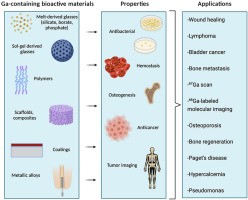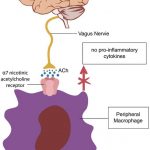
Contents
gallium nitrate
Gallium nitrate is a medication used to reduce blood calcium levels in adults with symptomatic cancer-related hypercalcemia that has not responded to hydration. Gallium nitrate used to be administered intravenously but is no longer available in the U.S. Side effects of gallium nitrate include kidney damage, elevation in blood urea nitrogen (BUN), acute kidney failure, hypocalcemia, hypophosphatemia, and others.
Hypercalcemia is common in many cancers, particularly non-small cell lung cancer, breast cancer, multiple myeloma, kidney cancer, and head and neck cancer. Cancer-related hypercalcemia is caused by an imbalance in bone resorption and urinary excretion of calcium. Gallium nitrate inhibits calcium resorption from bone and may reduce bone turnover.
Gallium nitrate is a nitrate salt of gallium cation, a heavy metal. Its precise mechanism in reducing blood calcium has not been established. Gallium nitrate promotes the crystallization of hydroxyapatite, reducing bone mineral solubility. It may also reduce bone resorption by inhibiting acid secretion by osteoclasts.
Warnings
- Do not administer gallium nitrate to patients with severe impairment of kidney function (serum creatinine above 2.5 mg/dL).
- Treatment with gallium nitrate is associated with abnormalities in kidney function. Hydrate patients adequately before initiating treatment and ensure sufficient urine output.
- Maintain adequate hydration during treatment and avoid overhydration in patients with compromised cardiovascular status.
- Monitor serum creatinine frequently during treatment and discontinue gallium nitrate if it exceeds 2.5 mg/dL.
- Avoid concurrent use of other nephrotoxic drugs such as aminoglycosides and amphotericin B. If other nephrotoxic drugs are required, discontinue gallium nitrate and continue hydration for several days after administration.
Side Effects
Common side effects of gallium nitrate include kidney damage, elevated BUN, elevated serum creatinine, acute kidney failure, hypocalcemia, hypophosphatemia, decreased serum bicarbonate, respiratory alkalosis, anemia, leukopenia, hypotension, tachycardia, optic neuritis, temporary or permanent loss of vision, and others.
Contact your doctor immediately if you experience serious side effects such as serious heart symptoms, severe headache, severe weakness, or serious eye symptoms.
This is not a complete list of side effects. Call your doctor for medical advice about serious side effects or adverse reactions. You may also report side effects to the FDA at 1-800-FDA-1088.
What Is Polycythemia Vera?
Dosages
Injectable Solution
- 25 mg/mL (product discontinued)
Adult:
Cancer-related Hypercalcemia
- Discontinued by the manufacturer (4/4/2012)
- Premedicate to prevent hypersensitivity reactions. Administer 100-200 mg/m2 intravenously over 24 hours for 5 days. Shorten treatment if calcium levels return to normal in fewer days.
- Moderate renal impairment: Dose adjustment not provided by manufacturer’s labeling; monitor renal status
- Severe renal impairment: Contraindicated
Pediatric:
- Safety and efficacy not established
Overdose
Gallium nitrate overdose and rapid IV infusion can cause nausea, vomiting, and increase the risk for kidney insufficiency. In the event of overdose, discontinue gallium nitrate infusion and provide intravenous hydration for 2-3 days while monitoring calcium levels, kidney function, and urine output.
Drug Interactions
Inform your doctor of all medications you are taking. Gallium nitrate has no listed interactions with other drugs.
It is important to always tell your doctor, pharmacist, or health care provider about all medications you use.
Pregnancy and Breastfeeding
- No animal reproductive studies have been conducted. Use in pregnancy only if clearly needed.
- It is not known if gallium nitrate is present in breastmilk. Discontinue breastfeeding or gallium nitrate based on importance of the drug to the nursing mother.
Subscribe to MedicineNet’s Cancer Report Newsletter
By clicking "Submit," I agree to the MedicineNet Terms and Conditions and Privacy Policy. I also agree to receive emails from MedicineNet and I understand that I may opt out of MedicineNet subscriptions at any time.
Summary
Gallium nitrate is a medication used to reduce blood calcium levels in adults with symptomatic cancer-related hypercalcemia that has not responded to hydration. Gallium nitrate used to be administered intravenously but is no longer available in the U.S. Common side effects of gallium nitrate include kidney damage, elevation in BUN, acute kidney failure, hypocalcemia, hypophosphatemia, and others.


